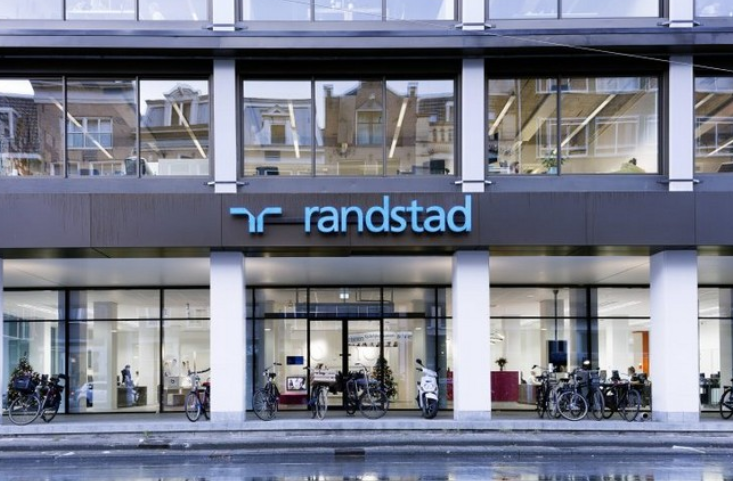A generational transition is taking place in the Australian labour market where Generation Z is reshaping the notion of loyalty, ambition, and career stability. The growing Gen Z job flexibility and benefits trends are changing the way companies define success and staff retention.
A recent survey conducted by recruitment agency Randstad has uncovered that 47% of the workers belonging to the Gen Z cohort intend to take breaks during their career. Their reason to take a break is not exhaustion but rather a desire to explore, freelance and align with their personal values, unlike the people of other generations, who took breaks mostly because of burnout.
The report titled The Gen Z Workplace Blueprint: Fast Moving, Future Focused comes to the conclusion that only 6% of the surveyed people will stay for a long period. Randstad Australia’s executive general manager, Angela Anasis, stated that this scenario illustrates a big contradiction. If Gen Z wants long-term growth, they will still leave the company if the career paths are not clear.

Gen Z reshapes loyalty, ambition, and success in Australia’s workplaces.
What Gen Z Wants From Employers 2025
Ms Anasis mentioned that when looking for a new job, 85% of the younger generation consider the potential for that job to lead to a better career. However, their ambition seems to be the reason, as their average tenure is only about a year. “When they don’t see any future for them in the company, they’ll just leave,” she noted.
This new point of view is compelling organisations to modernise their workforce structures in response to what Gen Z wants from employers in 2025. Not just the length of employment or positions, but Gen Z workers are committed to growth, being real, and having a purpose that aligns with their own.
In order to keep their young talents, employers will have to provide a clear path for growth, constantly upgrade their skills, and give them benefits that matter to them. These changes align with the Gen Z job flexibility and benefits trends now shaping every workplace conversation.
Why Are Young Australians Taking Early Career Breaks?
Kailash Sarma, a 22-year-old adviser based in Sydney, decided to spend two months away from his bank to travel across Europe. He called it “a process of recalibration” rather than an escape. “I needed to travel, get new energy, and come back in a better shape,” he explained.
The findings of Randstad’s study point to the fact that such breaks are not indicators of people losing interest in their jobs. Instead, they signify a planned interruption—an event that offers the chance to gain maturity and insight. In the world, 22% of the Gen Z workforce changed jobs last year, and 35% are willing to do it within the next year. These findings further confirm how Gen Z job flexibility and benefits trends drive intentional career pauses instead of burnout-driven exits.

Sydney adviser Kailash Sarma, 22, took two months off to recharge in Europe.
Gen Z Job Flexibility And Benefits Trends Highlight A New Loyalty Code
The new trend demonstrates that employee retention is still there, only in a new version. Gen Z is still around for companies that provide good working conditions, flexibility, and a clear reason to exist. They are the ones who come to companies that regard the lowest positions as the start of the career rather than the dead end.
According to Ms Anasis, “Employers should link training and AI skills to real growth.” The notion of flexibility here is that one is not avoiding the office; instead, one is in control of his//work-life balance. The possibility of changing one’s hours or a mix of remote and onsite work is what matters. This redefined loyalty reflects the broader Gen Z workplace culture expectations across industries.
How Are Side Hustles Changing Workplace Culture?
Randstad’s data indicates that 38 per cent of Australian Gen Zs are in a full-time position only. One out of five is getting income from different sources, such as freelancing or side projects. “Generating extra income is how Gen Z diversifies their interests,” Ms Anasis commented.
This shows the Gen Z workplace culture expectations, which are independence, creativity, and tech-savvy entrepreneurship. Many people have online businesses in addition to their corporate jobs, which indicates their preference for controlling their income and the impact they make. Flexibility is a must-have today, along with salary, reinforcing what Gen Z wants from employers in 2025.

Randstad reports 38% of Australian Gen Z work full-time; one in five freelances.
What Does The Future Workforce Look Like?
Randstad cautions that the reduction of entry-level positions in tech and finance will lead to a period of uncertainty. Ms Anasis pointed out that companies will have to change their hiring processes if they are to keep the future talent pool filled. “Reduced entry-level positions equal reduced pathways for development,” she remarked.
Analysts have different views on the issue; however, concern about turnover is not one of the reasons for them to see this as a positive change. Gen Z’s mentality is the one that makes companies put emphasis on mental health, purpose, and adaptability.
“The ones who adapt the quickest will get Gen Z loyalty,” Ms Anasis said. Gen Z do not feel disconnected; they are ambitious and driven by a set of values. Their definition of success includes freedom, satisfaction, and a genuine work environment—all central to the Gen Z job flexibility and benefits trends influencing corporate Australia.
Also Read: The 2025 Gen Z Key Social Issues Will Be at the Center Stage
FAQs
Q.1 Why is Gen Z quitting jobs so fast?
They quit when there are no opportunities for advancement or the work is too rigid, not because they lack commitment.
Q.2 What are Gen Z’s priorities in employers?
Mainly, they ask for opportunities for growth, authenticity, wellness, and career development that are easy to see.
Q.3 Do side hustles hence full-time jobs?
No. They go hand-in-hand with full-time jobs as they provide a creative outlet and also financial flexibility.
Q.4 What measures can employers take to keep Gen Z staff?
Provide strong career paths, flexible working arrangements, mental health support, and benefits aligned with purpose.












